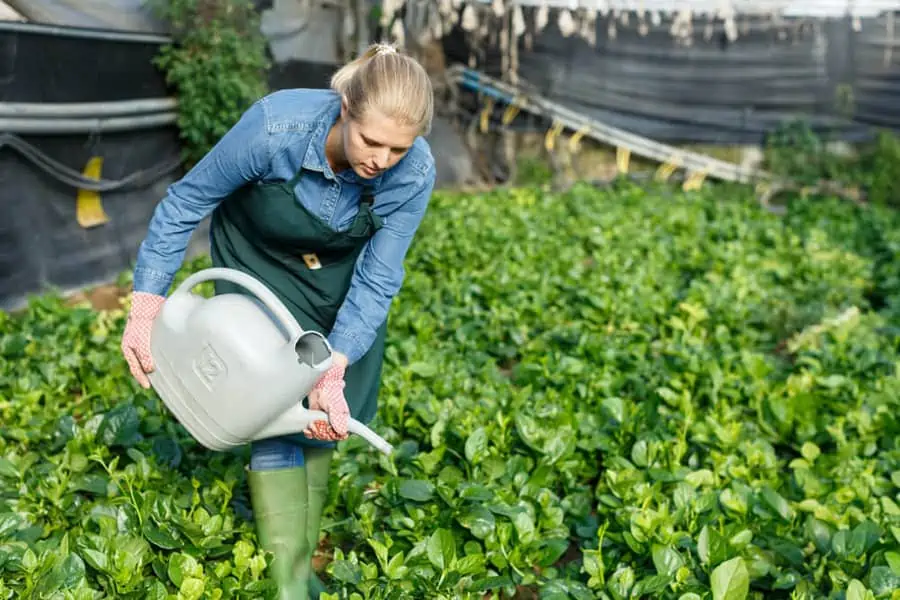Introduction: What Is Horticulture?
Horticulture is the science and art of cultivating plants — fruits, vegetables, flowers, herbs, ornamental trees, and turf. But it’s more than just gardening. A horticulturist understands plant biology, genetics, soil science, pest control, climate conditions, and sustainable growing practices. Whether it’s developing disease-resistant crops, improving the shelf life of produce, or designing landscapes, horticulturists play a vital role in food security, environmental health, and aesthetic living spaces.
Step-by-Step Path to Becoming a Horticulturist
1. Start Early: Build Interest in School
The path typically begins in high school. Students interested in horticulture should:
- Take biology, chemistry, and environmental science courses.
- Get involved in gardening clubs or volunteer at local nurseries or botanical gardens.
- Participate in 4-H or Future Farmers of America (FFA) if available.
This early exposure helps build foundational knowledge and demonstrates interest to college admissions committees.
2. Earn a Bachelor’s Degree in Horticulture or a Related Field
Most horticulture careers require at least a Bachelor of Science (B.Sc.) in Horticulture or Plant Science. These degrees cover subjects like:
- Plant physiology and pathology
- Soil science and agronomy
- Greenhouse and nursery management
- Pest and disease control
- Genetics and plant breeding
- Landscape design and turf management
Top U.S. Colleges for Horticulture and Plant Sciences:
- Cornell University – College of Agriculture and Life Sciences
- University of California, Davis – Plant Sciences Department
- Michigan State University – Department of Horticulture
- Texas A&M University – Horticultural Sciences
- University of Florida – Environmental Horticulture
Many of these institutions offer specialized tracks such as floriculture, pomology (fruits), olericulture (vegetables), or ornamental horticulture.
3. Internships and Hands-On Experience
Hands-on training is critical. Students should pursue:
- Summer internships at botanical gardens, farms, landscaping companies, or research labs
- Volunteering in community gardens or conservation projects
- Research assistant positions on campus
This real-world exposure builds confidence and networks within the horticultural field.
4. Consider Graduate Studies (Optional but Beneficial)
If you aim for roles in research, academics, agribusiness R&D, or high-level consultancy, a Master’s or PhD in horticulture, plant biology, or agronomy may be necessary. Graduate programs allow specialization in fields like:
- Biotechnology and plant breeding
- Sustainable agriculture
- Controlled-environment agriculture
- Post-harvest technology
5. Certifications and Licenses (as needed)
Depending on your career path, certifications may enhance your resume:
- Certified Professional Horticulturist (CPH) – recognized in many U.S. states
- Pesticide Applicator License – required for pest control and chemical use
- ISA Certified Arborist – if working in tree care or landscaping
These show professional credibility, especially in competitive or regulated industries.
6. Career Paths and Job Roles in Horticulture
Horticulture is a diverse field. Depending on your skills and interests, you can specialize in:
| Area | Job Title | Description |
|---|---|---|
| Agribusiness | Crop Specialist, Agronomist | Advise farmers on improved crop yields, pest control, soil management |
| Floriculture & Nursery | Greenhouse Manager, Floral Designer | Manage flower and ornamental plant production |
| Research & Development | Plant Breeder, Lab Technician | Work on developing disease-resistant or climate-adapted plant varieties |
| Landscaping & Design | Landscape Architect, Urban Horticulturist | Plan and manage urban green spaces |
| Education & Extension | Agricultural Extension Officer, Horticulture Instructor | Educate communities or students on best horticultural practices |
| Sales & Marketing | Horticulture Product Manager | Work for seed companies, fertilizers, or greenhouse tech firms |
Average Entry-Level Salary (U.S.):
- Starts from $40,000 to $60,000/year, with experience leading to $80,000+ in research, government, or private sectors.
Future Trends in Horticulture
- Sustainable and Organic Farming: Growing demand for eco-friendly practices.
- Urban Agriculture: Rooftop farming, hydroponics, and vertical gardens are booming in cities.
- Biotechnology: Genetic modification and plant-based solutions for climate change and food scarcity.
- Landscape Horticulture: Increasing focus on climate-resilient and water-efficient urban designs.
Final Thoughts from a Career Consultant
If you’re passionate about plants, science, and sustainability, horticulture offers a fulfilling and impactful career. The field blends science, creativity, and environmental stewardship — and it’s evolving rapidly with technology and global food demands. Start by getting your hands dirty, literally and figuratively, and immerse yourself in both academic study and real-world practice.
Case Snapshot: From College Greenhouse to International Floriculture
Name: Amanda L., Texas A&M Graduate
Path: B.Sc. in Horticulture → Internship at a local greenhouse → Master’s in Plant Breeding → Hired by a global floriculture firm in the Netherlands
Advice: “Start small and don’t worry about knowing everything. The more you experiment, the more you grow — just like plants. Also, learn some basic coding and data skills. Even in plant science, data drives decisions now.”
